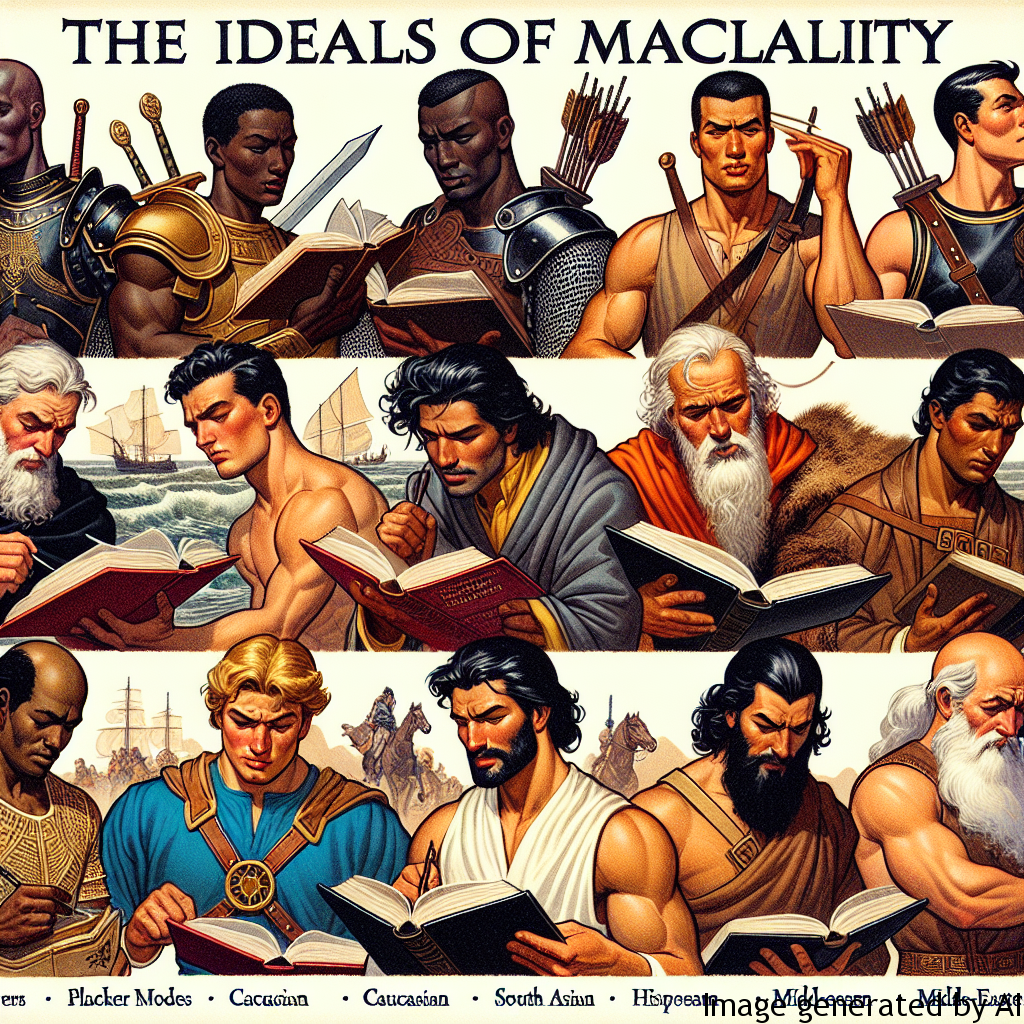Introduction
In literature, masculinity is often embodied through heroic characters that depict strength, courage, responsibility, and decision-making skills. These ideals have evolved over time, providing a dynamic view that enriches various forms of writing. However, these literarily crafted ideals have cemented their impact on the societal image of masculinity, shaping the expectations and experiences of men throughout different cultures and generations.
Description of Gender Expectations and Their Influence on Men’s Mental Health
The social construct of masculinity is forged by customs, beliefs, and values prevalent within a specific society at a particular time. Literature, serving as a mirror to society, echoes these expectations, often strengthening them, casting long shadows on men’s mental health.
The Burden of Expectations
From bravado in epics to stoicism in modern tales, men are often portrayed as respites of dependence, physical strength, and emotional control. This portrayal has resulted in creating an ideal image of masculinity, leading to increased pressure and unrealistic expectations. This unrealistic expectation of always appearing strong and in control can often suppress emotional expression and heighten the risk of mental health issues like depression, stress, and anxiety.
Unattainable Standards of Masculinity
Not all men can or wish to adhere to the universally championed figure of masculinity. The inability to comply with or the rejection of these standards can lead to feelings of inadequacy, loneliness, or alienation, negatively impacting their mental health.
Examples of How Gender Roles Can Influence Men’s Lives
Literature and popular culture present various instances of gender roles influencing men’s lives. Characters like Jay Gatsby from “The Great Gatsby” and Hamlet from Shakespeare’s eponymous play illustrate the adverse effects of societal expectations and the consequences of adhering to or defying them. They represent men’s struggle with their identity, voice, and place in contemporary society, reflecting the reality of many men.
Advice on Improving Mental Health With Consideration of Gender Roles
While societal norms and expectations are significant, focusing on individual mental health should take precedence. Society should encourage and permit men to express their feelings openly, seeking professional help when needed.
Men must understand that accepting vulnerability does not make them any less masculine nor does it diminish their value or worth. Regular conversations about mental health, coupled with safe spaces for emotional expression, can go a long way in breaking down the walls of gendered expectations, leading to improved mental health overall.
Conclusion
The influence of literature on our understanding of masculinity is vast and comprehensive. It shapes our perspective and men’s self-perception, ingrains societal norms, and influences gender roles. While literature’s portrayal of masculinity has evolved over time, society must recognize the difference between literary caricature and realistic expectations. Men’s mental health can immensely benefit from an honest, inclusive, and accepting narrative on masculinity and its meaning. After all, true masculinity resides in embracing one’s unique identity, showing empathy, and respecting others, rather than solely exhibiting strength and dominance.

